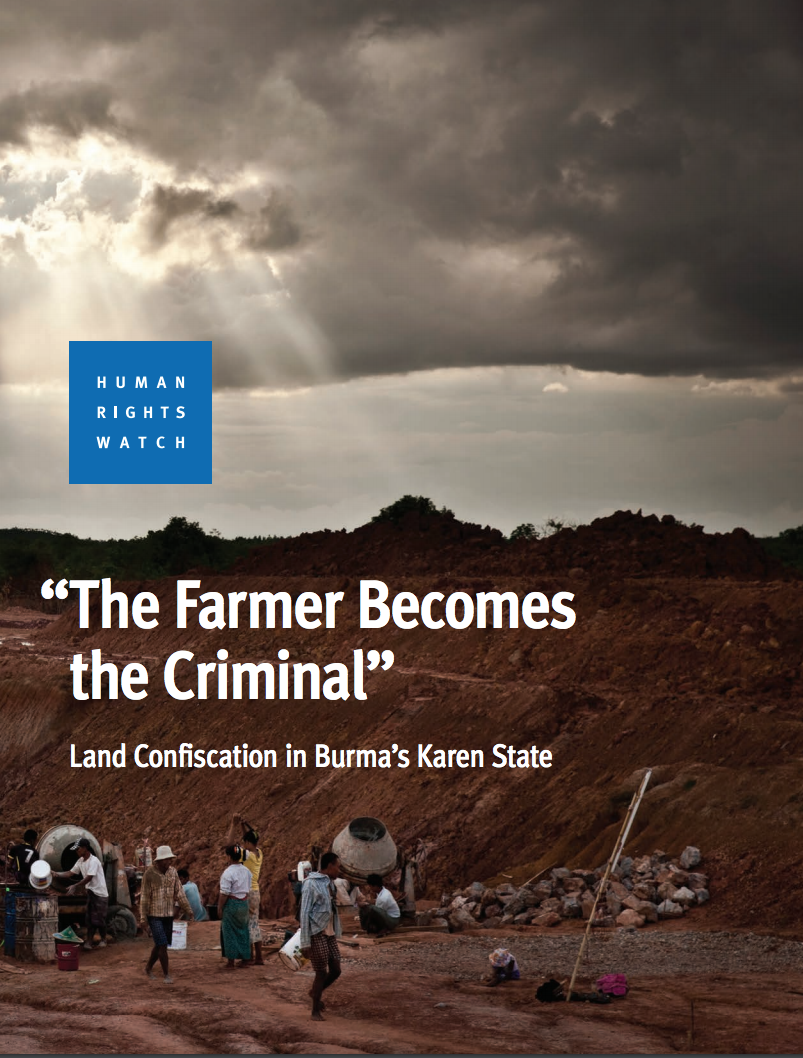Resource information
In Burma, where 70 percent of people earn a living through agriculture, securing land is often equivalent to securing a livelihood. But instead of creating conditions for sustainable development, recent Burmese governments have enacted abusive laws, enforced poorly conceived policies, and encouraged corrupt land administration officials that have promoted the displacement of small-scale farmers and rural villagers.
Conflicts over land have come to the forefront of Burma’s national agenda in recent years. These tensions have intensified as the country has embarked on a process of democratic transition and reform, with greater openness in some areas, but continued military dominance in other sectors, particularly where the military controls key government ministries.
Land disputes are a major national problem, with rising discontent over displacement for plantation agriculture, resource extraction, and infrastructure projects—often without adequate consultation, due process of law, or compensation for those displaced. In many parts of the country, those contesting land seizures have taken to the streets in frequent demonstrations but have faced retaliation in the courts.
The dual problems of land confiscation and reprisals against protesters is particularly acute in Karen State. Located along the border with much more prosperous Thailand, Karen State is viewed by many as a desirable site for investment in the tourism, extractive, and agriculture industries.
The economic opening of the country to investors has made land more valuable, while the peace process in Karen State and other ethnic areas has given access to areas previously beyond the reach of the Burmese armed forces and military-linked businessmen. The result is that powerful interests are gaining land through questionable means while farmers are losing it, often without adequate compensation.
As peace negotiations continue and the return of refugees from Thailand gains credence,land tenure issues will likely intensify, particularly as those who return find that land they previously farmed has now been occupied by government or business interests.[1]
This report focuses on government abuses related to land confiscation in areas near Hpa-an, the capital of Karen State. The villages in this area are under the effective control of the Burmese military, called the Tatmadaw, and military-controlled militias called Border Guard Forces (BGFs), or are located in areas of mixed governance by the ethnic armed group Karen National Union (KNU) or other militias and the government.
The report illustrates the dynamics of land confiscation in Karen State—a longstanding problem previously documented by Human Rights Watch and local organizations such as the Karen Human Rights Group.[2] It details cases in which government officials, military personnel and agents on behalf of the army, local militia members, and businessmen have used intimidation and coercion to seize land and displace local people. It also documents the impact of land loss on local villagers, some of whom have farmed land for generations but lack legal documentation to prove it.


